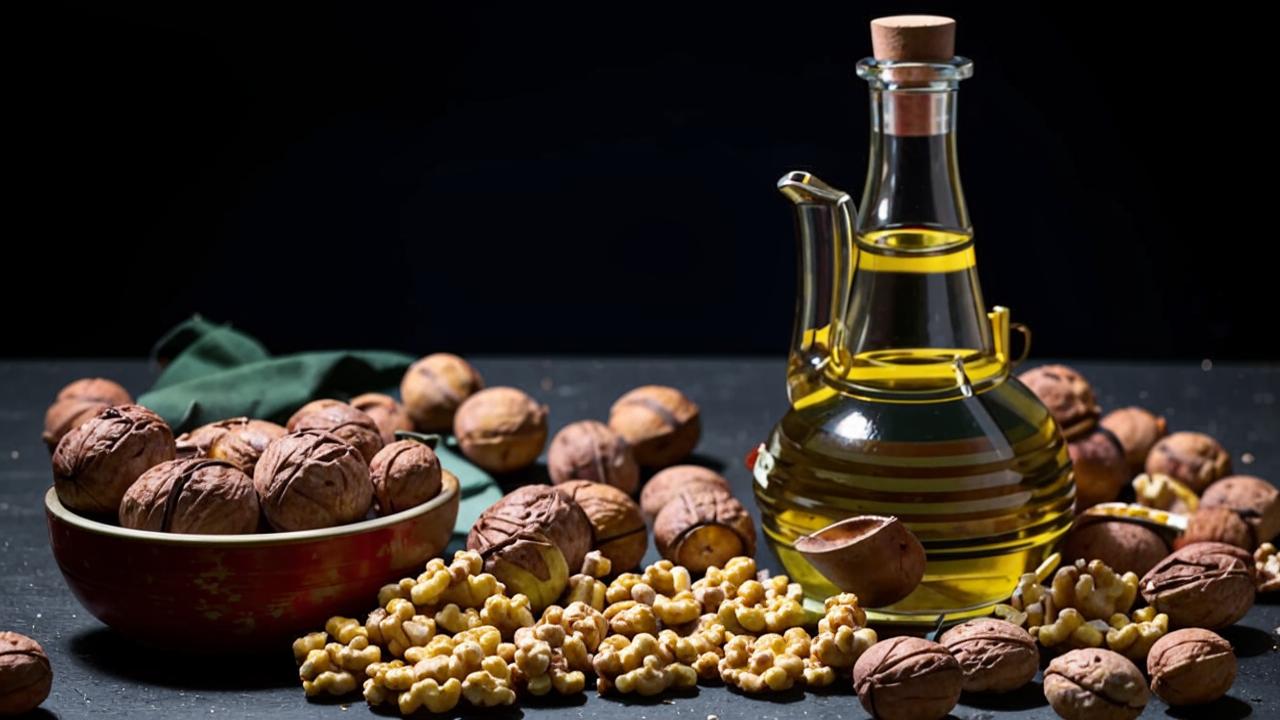fitness nutritionist
“Meals should contain adequate amounts of nutrients, that is, organic and inorganic substances that are found in foods. They are divided into macronutrients and micronutrients. The former are necessary for the body in large quantities – a person’s daily diet should contain dozens of grams of proteins, fats and carbohydrates. With a deficiency of nutrients can be observed in the work of organs. And often such conditions lead to the development of diseases”.
What are nutrients?
Nutrients are nutrients that the body needs to function properly, renew cells and tissues, and provide energy. They are found in foods and supplements. They are divided into two main groups: macronutrients and micronutrients.
Micronutrients – vitamins, minerals, which are contained in food in very small quantities. However, their presence in the body is also important. They participate in the process of digestion of the food consumed, growth and adaptation of the body to external conditions.

Macronutrients are proteins, fats, carbohydrates, which we need in large quantities, because they participate in the “building” of the foundation for the basic functions of the body and are a source of energy. To protect yourself and your body, it is necessary to keep a balance in food, taking into account the daily doses of nutrients.
What is each group of macronutrients?
Proteins
Proteins are the building material for all organs and tissues. They ensure normal metabolism, strengthen and protect immunity, deliver oxygen to tissues.
With a deficiency of protein in muscle tissue, it is destroyed and sarcopenia develops. Lack of substance in the bones leads to the development of osteoporosis, and the skin without enough protein is covered with early wrinkles.
The main sources of complete protein are products of animal origin – fish, meat, dairy, seafood, eggs. And they are assimilated by the body almost 100%. Vegetable protein is contained in legumes, nuts, cereals, but is assimilated from 60% to 80%, and protein from mushrooms – only from 20% to 40%.

Fats
Fats create a fat pad between internal organs, protecting them from impact, displacement. They are necessary for the production of hormones, assimilation of fat-soluble vitamins, preserving the elasticity of the walls of blood vessels, intercellular membranes.
Animal fats, including milk fat, contain vitamins A and D. In vegetable fats in large quantities are polyunsaturated fatty acids, vitamin E and beta-sitosterol, which normalizes cholesterol metabolism.
Deficiency of fats in the diet leads to impaired reproductive function, reduced mental abilities, frequent viral infections (ARVI), dry skin, brittle nails, hair loss, impaired vision in the dark.
The main sources of fats are: nuts, seeds, unrefined vegetable oils, butter, fish oil.

Carbohydrates
Carbohydrates are the main source of energy. They also help proteins build cells, regulate metabolism, remove toxins, and cleanse the gastrointestinal tract (GI tract). If they are lacking, the body begins to use fats and even protein for energy, which can cause serious changes in metabolism and affect the liver and kidneys.
Fast carbohydrates (glucose, fructose, sucrose) in large quantities are found in sweets, pastries, sodas. The body breaks them down instantly and immediately gets the energy it needs, but only for a short time. After 30-40 minutes, the feeling of satiety is replaced by hunger.
Complex or slow polymeric forms of carbohydrates (starch, fiber) are found in whole-grain cereals, legumes, vegetables, dairy products. The body breaks them down to simpler ones for at least two hours, energy is supplied in a dosed and stable manner, and we feel satiety all this time.
Macronutrient standards
The norms of BGU (proteins, fats and carbohydrates) for each person are calculated individually. In each case, the set of nutrients will be different.
First, the value of the basic metabolism is determined (the minimum amount of energy needed to carry out vital processes of the body), taking into account sex, age, weight and height. Then the daily calorie requirement is calculated with the coefficient of physical activity of the person. And only then the daily norms of BJU are distributed by meals.
If your body is normal, you do not pursue weight loss and want to maintain balance, then you can follow one of the calculation systems.
Daily norms of BGU per 1 kg of weight:
- 1.5-2 g protein;
- 0.8-1.5 g of fats;
- 2 g of carbohydrates.
Thus, the daily diet should consist of the proportions: 3-3-4, where 30% are proteins, 30% are fats, and 40% are carbohydrates.
The norm of the ratio of nutrients allows you to monitor the number of calories consumed. And for these purposes, you can use online calculators.

Having learned the amount of BJU, you can compare the indicators of the norm with your individual figures and adjust the diet.
What does the lack and overabundance of macronutrients lead to?
The impact of protein
Overabundance of protein worsens metabolism, affects the secretory function of the stomach in a bad way, affects the kidneys, liver, leads to overexcitation of the nervous system. Also a large amount of the nutrient affects the hormonal background.
With a lack of protein, the body is deficient in important elements necessary for full metabolism and heat formation.
The influence of carbohydrates
Since these substances are responsible for replenishing energy in our body, their deficiency can inhibit mental and physical activity, negatively affect the overall performance. Also, overabundance leads to hormonal disorders and GI problems.
Regular overeating with products rich in carbohydrates will cause overweight, atherosclerosis, diabetes, caries.
Influence of fats
Prolonged excessive consumption of fats increases their amount in the blood. That, in turn, affects the work of internal organs. Affects the liver, increases the content of cholesterol in the blood, increases the load on the activity of the pancreas. All this leads to obesity, atherosclerosis.
Lack of fats also negatively affects the function of organs. Deficiency of nutrients becomes the cause of water balance disorders, dry skin, weight loss, slow physical and mental development.
Micronutrients and their impact on the body
As for micronutrients, the body needs them in small amounts. The daily requirement of vitamins and some minerals is measured in milligrams and micrograms. However, their deficiency can lead to serious diseases of the body.
When vitamins are deficient, hypovitaminosis – moderate deficiencies with loss of appetite, irritability, rapid fatigue, bleeding gums, skin diseases – occur. And in the absence of vitamins develop avitaminosis – deep deficiencies with specific diseases (scurvy, pellagra, rickets, beri-beri, chicken blindness).
The need for vitamins depends on age, sex, physical activity, living conditions. To a greater extent, vitamins are needed by children, pregnant women, in cold climates, in stressful situations, with a lack of ultraviolet light.
Water-soluble vitamins C and B vitamins are found in fruits, berries, vegetables, herbs. Sources of fat-soluble vitamins A, D, E and K are fish oil, butter, cream, and some vegetables.

Mineral substances are divided into macro- and microelements. Macronutrients include calcium, phosphorus, magnesium, potassium, sodium, chlorine and sulfur, while trace elements include iron, copper, zinc, iodine, fluorine, manganese and others.
- Calcium is found in dairy and seafood, legumes and nuts. Its deficiency leads to disorders of bone formation, nervous excitability, blood coagulation disorders.
- Magnesium is present in cereals, vegetables, eggs, potatoes, bread and meat. Its deficiency reduces immunity, causes cramps, muscle weakness.
- Potassium is rich in milk, vegetables, potatoes, bananas, apricots, kiwi, cereals. With potassium deficiency are associated with cardiac weakness, arterial hypotension, renal dysfunction.
- Iron is found in red meat, fish, poultry, buckwheat groats, quince, figs, peaches, rose hips. With iron deficiency develops iron deficiency anemia, there is a decrease in immunity, attention and learning ability.
- Iodine in the greatest quantity is contained in seafood, especially shrimp, seaweed, is present in egg yolk, potatoes, turkey meat. Its deficiency reduces attention and reaction, causes problems with the heart and blood vessels. And if the deficiency of the substance has not been replenished for a long time, the thyroid gland increases.





